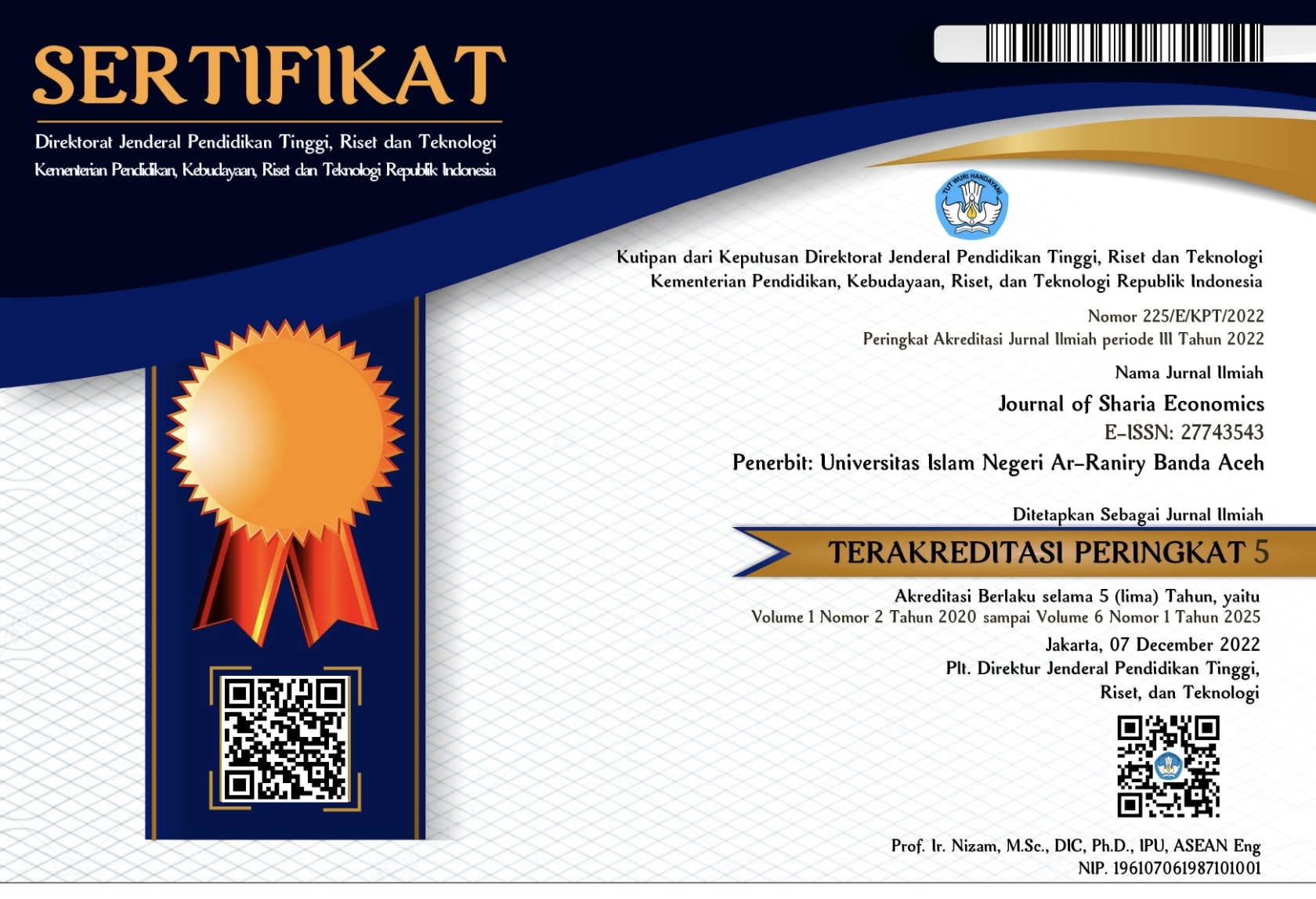ANALYSIS OF GOVERNMENT EXPENDITURE FROM THE PERSPECTIVE OF ISLAMIC ECONOMICS ON HDI IN WEST JAVA PROVINCE PERIOD 2013-2018
Indonesia
DOI:
https://doi.org/10.22373/jose.v5i2.4712Keywords:
Ekonomi Syariah, IPM, HDI, Ekonomi, Bisnis, Goverment, Pengeluaran Pemerintah, Ekonomi IslamAbstract
Abstract
The Human Development Index (HDI) serves as a key indicator in measuring a country's economic progress. However, despite Indonesia's relatively high economic growth, its HDI ranking remains low. To enhance economic development, the government must play an active role by directing expenditure policies across various sectors such as the economy, healthcare, and education. From the perspective of Islamic economics, government spending should be based on principles of justice, balance, and sustainability. This research employs a qualitative descriptive method, utilizing government expenditure data sampled from 2013 to 2018. The analysis reveals that government spending significantly impacts Indonesia's economic development positively. Each increment in government expenditure results in a certain percentage increase in economic growth. Furthermore, the research finds that the composition of government spending also influences economic growth. Government expenditure focused on productive sectors like infrastructure, education, and research and development yields a more positive impact on economic growth compared to expenditure on administrative and consumptive sectors. In the context of Islamic economics, government spending must adhere to Sharia principles, avoiding interest (riba) and practices contrary to Islamic values, while ensuring fair distribution of resources. Consequently, the government can foster an inclusive and sustainable economic climate, supporting the enhancement of the Human Development Index.
Keyword : HDI, Goverment Expenditure, Islamic Economy.
Abstrak
Indeks Pembangunan Manusia (IPM) menjadi salah satu indikator kunci dalam mengukur kemajuan ekonomi suatu negara. Namun, meskipun pertumbuhan ekonomi Indonesia relatif tinggi, peringkat IPM masih rendah. Untuk meningkatkan pembangunan ekonomi, pemerintah harus memainkan peran aktif dengan mengarahkan kebijakan pengeluaran pada berbagai sektor, seperti ekonomi, kesehatan, dan pendidikan. Dalam perspektif ekonomi Islam, pengeluaran pemerintah harus berdasarkan prinsip keadilan, keseimbangan, dan keberlanjutan. Penelitian ini menggunakan metode kualitatif deskriptif dengan mengambil sampel data pengeluaran pemerintah dari tahun 2013 hingga 2018. Hasil analisis menunjukkan bahwa pengeluaran pemerintah memiliki dampak positif yang signifikan terhadap pembangunan ekonomi Indonesia. Setiap kenaikan satu unit pengeluaran pemerintah menghasilkan peningkatan pertumbuhan ekonomi sebesar persentase tertentu. Lebih lanjut, penelitian ini menemukan bahwa komposisi pengeluaran pemerintah juga memengaruhi pertumbuhan ekonomi. Pengeluaran pemerintah yang difokuskan pada sektor produktif, seperti infrastruktur, pendidikan, dan riset dan pengembangan, memberikan dampak yang lebih positif terhadap pertumbuhan ekonomi dibandingkan dengan pengeluaran untuk sektor administratif dan konsumtif. Dalam konteks ekonomi Islam, pengeluaran pemerintah harus mematuhi prinsip-prinsip syariah, menghindari riba (bunga) dan praktik yang bertentangan dengan nilai-nilai Islam, serta memastikan distribusi yang adil dari sumber daya. Dengan demikian, pemerintah dapat menciptakan iklim ekonomi yang inklusif dan berkelanjutan, yang mendukung peningkatan Indeks Pembangunan Manusia.
Kata Kunci : IPM, Pengeluaran Pemerintah, Ekonomi Islam
Downloads
Published
Issue
Section
License
Copyright (c) 2024 sunani, Zahara Noviandra, Arifudin

This work is licensed under a Creative Commons Attribution 4.0 International License.












